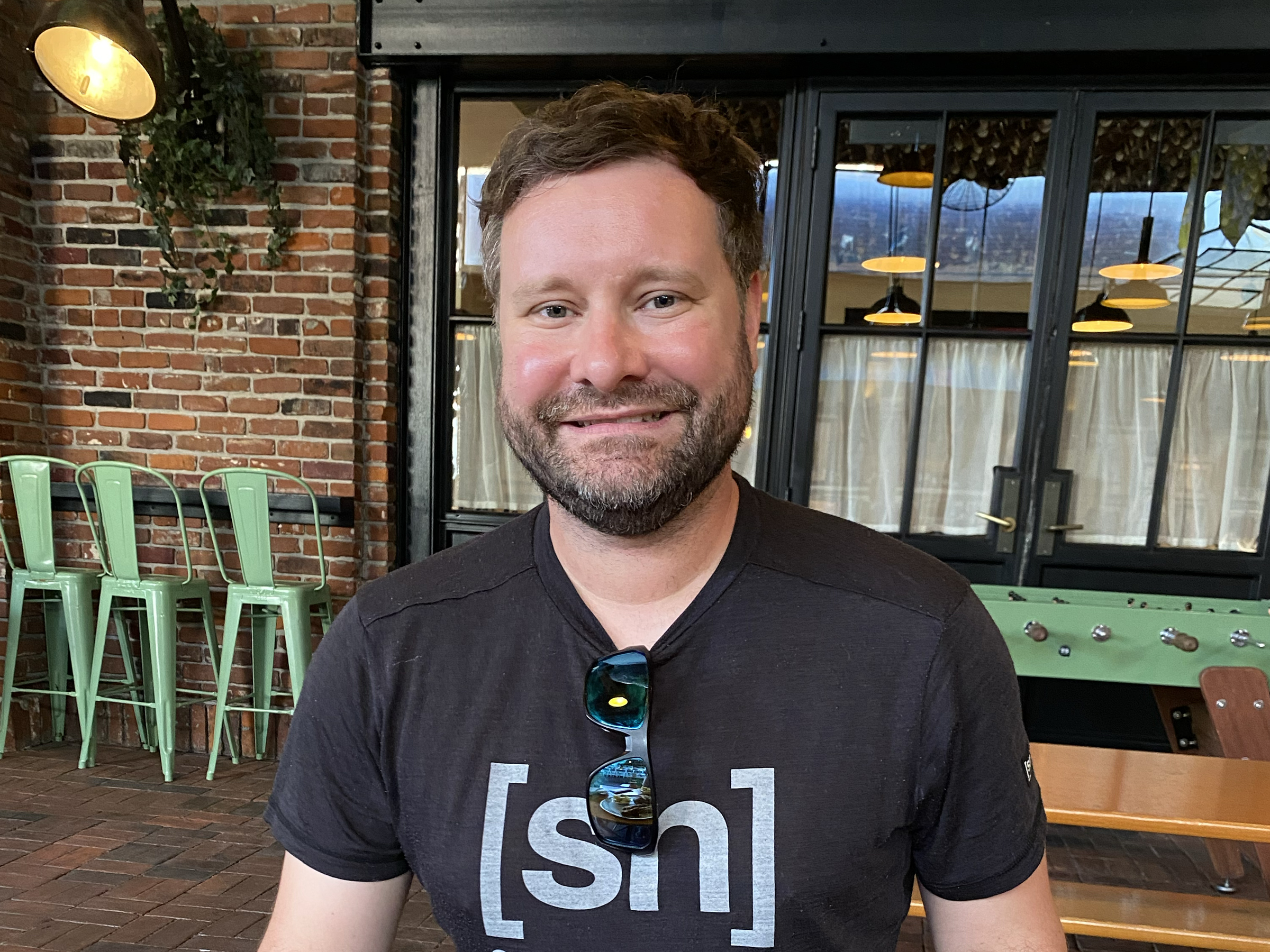Clemens Hinterleitner
Postdoctoral research fellow, Ludwig MSK
Tell us a bit about yourself.
I’m currently a postdoc in Scott Lowe’s lab here at MSK. I grew up in Mainz, a mid-sized town near Frankfurt in Germany. It’s a pretty classic German city with a lot of history. I studied medicine at Johannes Gutenberg University in Mainz, and then moved to Tübingen to begin my specialization in hematology and oncology.
What brought you to scientific research?
I’ve always been curious about how things work. My mom likes to remind me that as a child I would constantly ask questions about the world around me. I was especially fascinated by the idea that different animals can communicate and even collaborate despite not sharing the same ‘language.’ Looking back, that curiosity about how different systems interact and synergize has been a guiding theme throughout my scientific life.
I was always really interested in biology, and I also loved physics, even though, if I’m honest, my math skills probably weren’t strong enough to make a career in it. So I ended up focusing on biological questions. I applied for university and got selected for medical school in my hometown.
During med school, I joined a research lab and studied cell death mechanisms and novel treatment options in leukemia. It was the first time I worked with cells directly, learned how to culture them and analyze their behavior. That experience really shaped me and made me realize I wanted to become a hematologist and oncologist. What’s unique about that particular field is how closely treatment innovations are tied to scientific discovery.
After completing my specialization in southern Germany, I decided I wanted to return to research and focus on translational questions arising from the clinic. In 2021, I joined Scott Lowe’s lab at MSK. What I really like about our lab, aside from how collaborative and fun it is, is that we work right at the intersection of basic biology and translational cancer research.
How long have you been in the US at MSK?
I started my postdoc here at MSK in November 2021. I think I was literally on the first plane from Germany to New York after the travel ban. I’d actually never been to New York before, so it was quite an adventure. It’s an incredible city, and the institute is truly outstanding. One of the things I really enjoy here is how interactive the center is and how easy it is to start amazing collaborations. I also really value the close connection between the research labs and the hospital. As much as I love asking fundamental biological questions, it’s a big advantage to be able to test and validate findings from mouse models in a human context.
What does your current research aim to tackle?
In my current project I study a cellular program called senescence. When cells in our body get damaged, for example during inflammation, many of them die. But some manage to survive by entering senescence. These cells stop dividing to protect themselves from further stress and damage, but at the same time, they become remarkably active in communicating with their environment. They start secreting cytokines and extracellular vesicles, effectively becoming orchestrators of their own tissue environment.
What’s fascinating, and also controversial, is that this same program can have very different outcomes. On one hand, senescent cells can promote wound healing. On the other, they can drive chronic inflammation, aging, and fibrosis. So one process can be both beneficial and harmful and we still don’t fully understand why.
We identified a subset of senescent cells that accumulate in fibrotic tissues and the pro-fibrotic, immunosuppressive tumor microenvironment of liver and lung tumors. We found that these cells actually help tumor cells to evade the immune system. Working with Dan Heller’s group here at MSK, we designed nanoparticles that can deliver drugs specifically to these cells and either eliminate them or to block their communication. By targeting these cells, we can not only reduce fibrosis but also reprogram the immunosuppressive tumor microenvironment. Our treatment enables T cells to re-enter the tumor and attack the cancer cells. Ultimately, this treatment helps to enhance the effectiveness of immunotherapy in liver and lung cancer.
Any hobbies outside of work?
Besides the lab, I like to work out and spend time with my friends in New York. The city is full of things to discover every day. Also, as a good German, I love to discover new microbreweries. And honestly, if it’s a rainy afternoon, I also like to watch documentaries.
Do you have a favorite brewery?
I like Fifth Hammer and Rockaway Brewery in Long Island City. They also have live music there on summer weekends.
Your favorite music?
I was thinking about this. I grew up with Metallica, Red Hot Chili Peppers and Green Day. These are the bands I grew up with and it never changed.
Favorite author or favorite book, if you have one.
I really like Stephen Hawkings’ The Universe in a Nutshell. It gives unique new perspectives.
